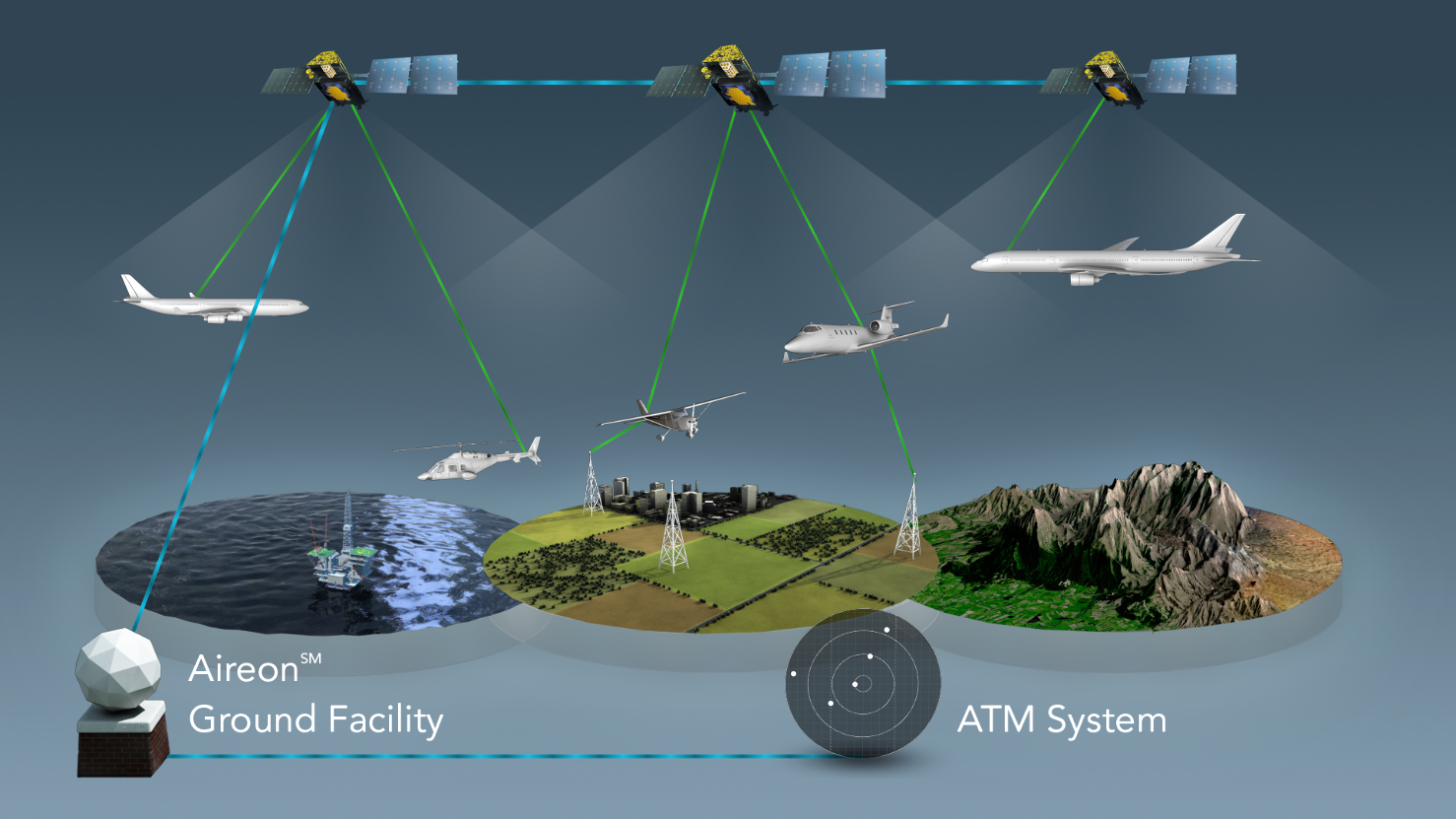Among the spectators watching the launch of a SpaceX Falcon 9 on 14th January, none were more nervous than the executives of Aireon, a company looking to revolutionize global air traffic management over the coming months. Each of the Iridium NEXT satellites due to be launched by SpaceX carries an Aireon payload. Once fully deployed, the Iridium NEXT constellation will constitute a global, space-based air traffic surveillance system for Automatic Dependent Surveillance-Broadcast (ADS-B)-equipped aircraft over the entire globe.
Aireon aims to provide real-time air traffic surveillance and flight tracking in oceanic, polar and remote regions, as well as augment existing ground-based systems that are limited to terrestrial airspace. Currently, more than 70% of the earth has no existing air traffic surveillance.
Aireon is working in partnership with air navigation service providers (ANSPs) from around the world, including NAV CANADA, ENAV, the Irish Aviation Authority (IAA) and Naviair, as well as Iridium Communications. The company hopes to have an operational, global, space-based air traffic surveillance system by 2018.
Aireon CEO Don Thoma declares: “Once our global ADS-B surveillance service is fully deployed, every ADS-B equipped aircraft can have its precise location accounted for 24/7.”
After approximately 40-60 days Iridium will hand-off the ADS-B payloads to Aireon for verification of on-orbit technical specifications. Aireon will then conduct independent testing and validation of the space-based ADS-B system for approximately 60 days.
As part of this testing and validation process, Aireon’s ADS-B receivers, manufactured by Harris Corporation, will provide air traffic surveillance data through the Aireon network to the Service Delivery Points (SDPs) at partner ANSPs, as well as the FAA’s William J. Hughes Technical Center in Atlantic City, New Jersey.
The network will also provide a new service known as Aireon ALERT, a free global emergency-aircraft tracking service that will be hosted and operated by the IAA through a 24/7 communications facility at the North Atlantic Communications centre in Ballygirreen, Ireland,
Earlier this year, Aireon also announced a partnership with FlightAware, and together launched the GlobalBeacon flight tracking service. GlobalBeacon is designed to help airlines comply with the International Civil Aviation Organization (ICAO) Global Aeronautical Distress Safety System (GADSS) requirements, and will provide airlines with minute-by-minute flight tracking data. In September, Qatar Airways became the first airline to adopt the GlobalBeacon solution.

